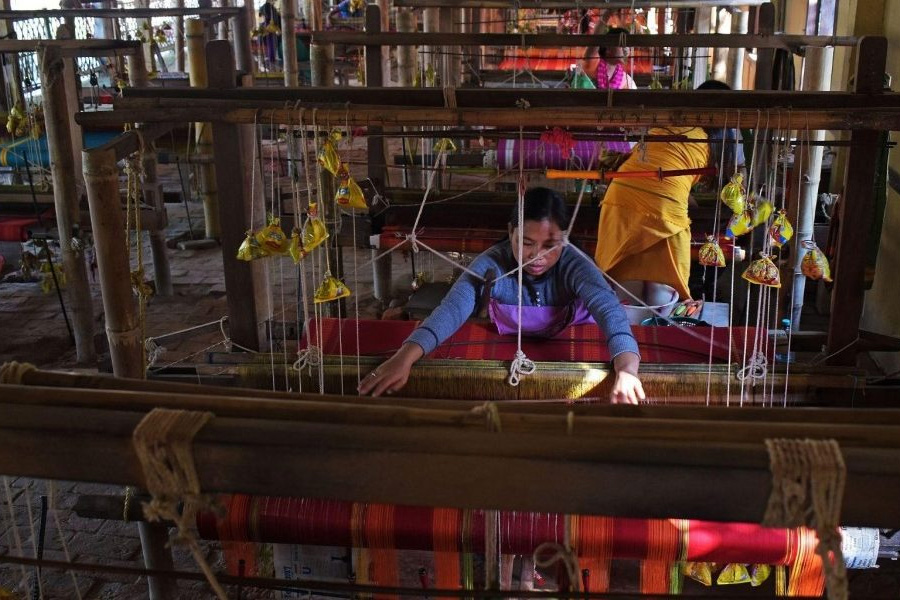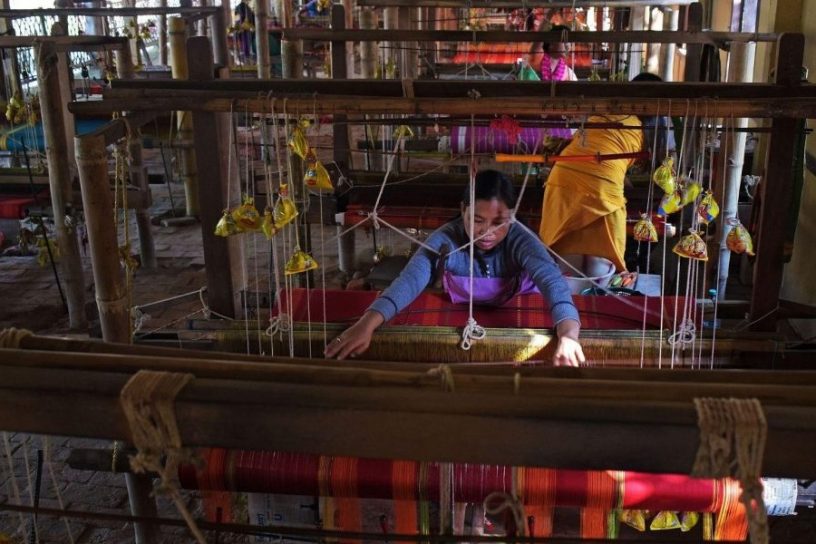
Based in the Chirang district of the state, the livelihood project run by the ant, a local NGO, provides employment to 70 women. Their exquisite apparel with intricate motifs has enthusiastic buyers in urban metropolises.
Authors
Deepanshu Mohan, Associate Professor of Economics and Director, Centre for New Economics Studies (CNES), Jindal School of Liberal Arts and Humanities, O.P. Jindal Global University, Sonipat, Haryana, India.
Jignesh Mistry, Senior Research Analyst, Centre for New Economics Studies, O.P. Jindal Global University, Sonipat, Haryana, India.
Ashika Thomas, Senior Research Analyst, Centre for New Economics Studies, O.P. Jindal Global University, Sonipat, Haryana, India.
Tavleen Kaur, Research Assistant, Centre for New Economics Studies, O. P. Jindal Global University, Sonipat, Haryana, India.
Hima Trisha, Research Assistant, Centre for New Economics Studies, O. P. Jindal Global University, Sonipat, Haryana, India.
Yashasvini Gupta, Research Analyst, Centre for New Economics Studies, O.P. Jindal Global University, Sonipat, Haryana, India
Summary
India’s geographical identity is shaped by its rich cultural diversity, with a multitude of ethnic and linguistic groups. The nation’s tribal communities have played a significant part in adding to this rich kaleidoscopic landscape of cultural diversity. They have their own distinct cultures, customs, traditions, and languages, unique art forms (traditional music and dance, and handicrafts), the knowledge of which has been passed over from one generation to another, shaping their lives and livelihoods.
However, despite the acknowledged significance of their respective cultural fabric, many of the tribal communities face adverse socio-economic challenges, living in abject poverty, with a lack of access to proper education, healthcare, and economic opportunities. The constitution may have made special provisions to care for these communities’ unique position in India’s social landscape and to offer significant ‘right-based’ interventions, yet successive governments have struggled in ensuring an adequate resolution to the issues of these communities and in securing holistic development for tribals. The state of Assam and its own tribal communities positioned in the Chirang district of Assam have been no different in this regard.
Indigenous, distinct ethnic-group populations developed skills that were necessary to survive in some of the most hostile (conflict-affected) environments known to humanity, and the adverse impact of state-apathy and intersectional marginalisation has further had a catastrophic impact on the women of these communities.
As communities struggle to participate in a more integrated economic market-based landscape, everyone’s livelihoods consequently depend on not just protecting their identity, but also on securing sustaining livelihoods through work and economic opportunities.
Published in: The Wire
To read the full article, please click here.


